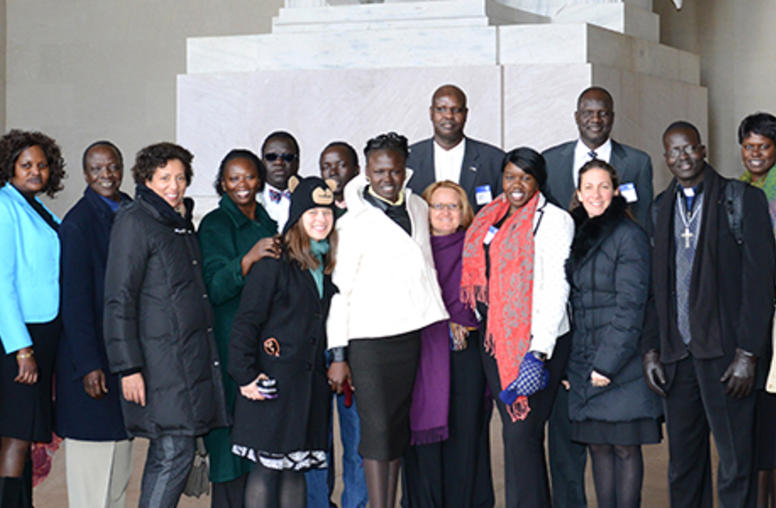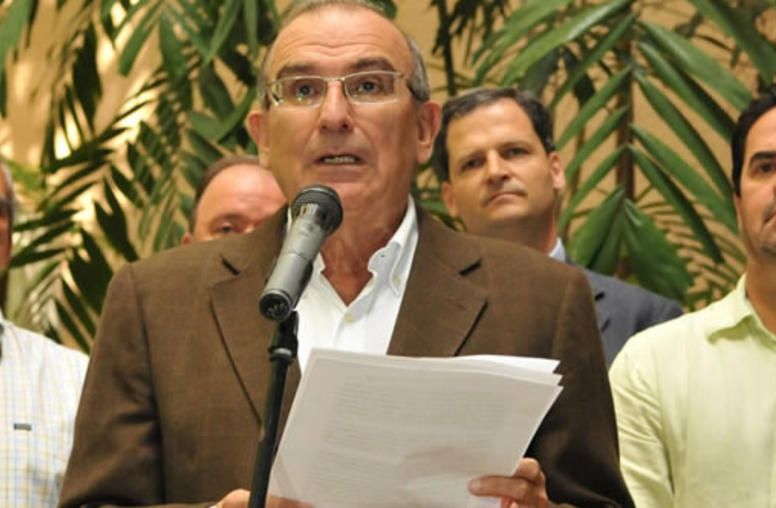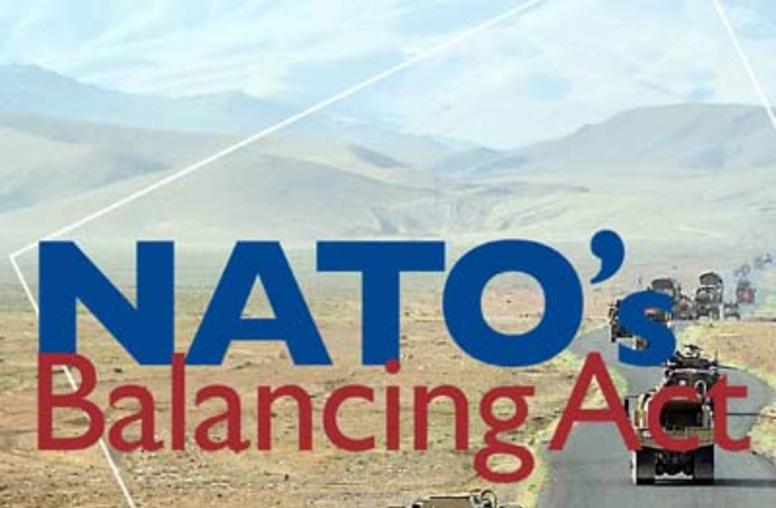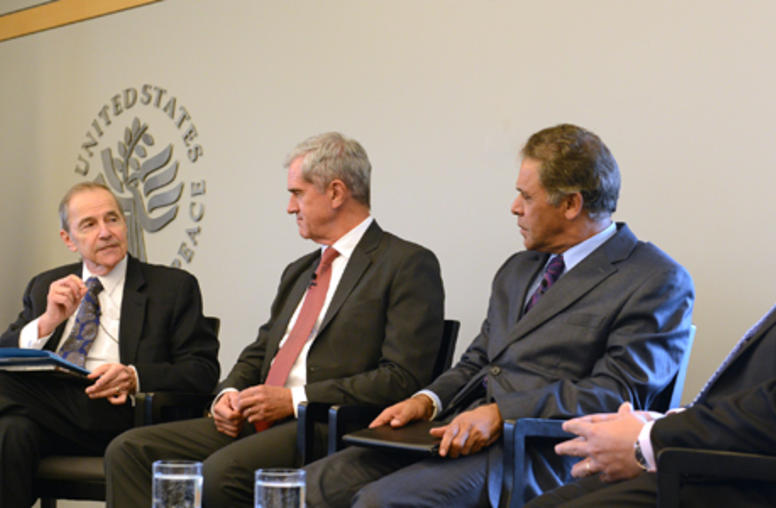USIP has helped in establishing a small network of institutions dedicated to supporting mediation, The Mediation Support Network. In February 2010 Virginia Bouvier traveled to Sando Sweden for the latest meeting of the network.
By: Virginia Bouvier
While Washington and the surrounding areas ground to a halt in the blizzard of 2010 and my D.C.-colleagues enjoyed the wonders of snow days and teleworking, I escaped between snowstorms bound for the winterscapes of Sweden. I was off to my first meeting of the Mediation Support Network (MSN), a small network of organizations that USIP helped organize two years ago to enhance communication and coordination between organizations that provide support for mediators and mediation teams. This would be the network’s third meeting, following encounters in Berlin in 2008 and in London last year.
 After more than 20 hours of travel and two stopovers, I arrived at the Arlanda airport in Stockholm at noontime on February 8th. My luggage was not so lucky. I had just enough time to pick up a few toiletries at the airport before meeting the rest of the MSN members at the central train station. I was anticipating a relaxing train ride taking in the Swedish countryside and recovering from the long journey, but it didn’t quite happen that way. Once on the train, we were engaged immediately by our hosts from the Folke Bernadotte Academy, a branch of the Swedish government dedicated to international peace and security, in a series of timed, structured activities that had us changing seats on cue and initiating conversations with network colleagues to discover our mutual values and to share expectations for the meetings ahead. The hours on the train flew by, and soon we were disembarking and crossing the tracks on a snowy street in the bustling town of Sundsvall. There we boarded a bus for the next and final stretch of our journey. We were heading north to Sando, a small island town about 500 kilometers northeast of Stockholm nestled in the River Angermanalven. There we would stay for the next two days at the headquarters of the Folke Bernadotte Academy.
After more than 20 hours of travel and two stopovers, I arrived at the Arlanda airport in Stockholm at noontime on February 8th. My luggage was not so lucky. I had just enough time to pick up a few toiletries at the airport before meeting the rest of the MSN members at the central train station. I was anticipating a relaxing train ride taking in the Swedish countryside and recovering from the long journey, but it didn’t quite happen that way. Once on the train, we were engaged immediately by our hosts from the Folke Bernadotte Academy, a branch of the Swedish government dedicated to international peace and security, in a series of timed, structured activities that had us changing seats on cue and initiating conversations with network colleagues to discover our mutual values and to share expectations for the meetings ahead. The hours on the train flew by, and soon we were disembarking and crossing the tracks on a snowy street in the bustling town of Sundsvall. There we boarded a bus for the next and final stretch of our journey. We were heading north to Sando, a small island town about 500 kilometers northeast of Stockholm nestled in the River Angermanalven. There we would stay for the next two days at the headquarters of the Folke Bernadotte Academy.
After we checked into the dorms at the Academy, we walked through the snow to the cafeteria across the way. One of our Swedish hosts, Ambassador Ragnar Angeby who, curiously enough, came from the same small town in southern Sweden from which my ancestors hailed, opened the dinner with warm words of welcome. He told us of Count Folke Bernadotte, after whom the Academy was named. Bernadotte was the nephew of Sweden’s King Gustav V. As vice chair of the Swedish Red Cross, he led a Swedish relief expedition to Germany in the final months of World War II in 1945 that saved some 30,000 concentration camp prisoners and delivered them safely to Sweden. Count Bernadotte was subsequently appointed U.N. mediator in Palestine in 1948--the first official mediator in the history of the U.N. It seemed fitting that the Mediation Support Network should convene at such an auspicious locale.
.jpg) For the next two days, 18 of us, representing the 11 organizations of the MSN, worked to define and consolidate the network. Participating organizations included:
For the next two days, 18 of us, representing the 11 organizations of the MSN, worked to define and consolidate the network. Participating organizations included:
- the Berghof Foundation for Peace Support (Berlin),
- Conciliation Resources (London),
- Crisis Management Initiative (Brussels and Helsinki),
- Folke Bernadotte Academy (Sando),
- the Centre for Humanitarian Dialogue (Geneva),
- the Initiative on Conflict Prevention through Quiet Diplomacy (Essex),
- the Mediation Support Project (Swisspeace and the Center for Security Studies/ETH Zurich),
- the U.N. Mediation Support Unit (N.Y.),
- USIP (Washington, D.C.),
- the Center for Peace Mediation and the Institute for Conflict Management (European University Viadrina/Humboldt-Viadrina School of Governance, Berlin), and
- Western Africa Network for Education for Peace/WANEP (Abuja).
Each of the network member groups are engaged in training, research or policy-making activities, and in the production of guidance notes for mediators, mediation teams, regional support organizations, or parties in conflict. During the meetings, we shared information about our diverse organizational mandates, methodologies, and priorities, particularly with regard to mediation training, the designated theme of these sessions.
We discussed the need for integrated training with government, intergovernmental organizations and nongovernmental organizations, so that the evolving roles of each sector in peace processes might create productive synergies.
"Local capacity is key for sustainable peace," Ambassador Angeby reminded us, and "small footprints are likely to be more effective than large international prints."
We discussed the developing field of mediation. Mediation has enjoyed increased attention following publication of the “Report of the Secretary-General on Enhancing Mediation and its Support Activities” presented to the U.N. Security Council in April 2009, which underscored the cost effectiveness of mediation for the constructive resolution of disputes. We noted the recent emergence of new mediator states that have not yet developed institutionalized mediation support mechanisms, and the evolution of groups of friends, and we strategized about how to ensure that these new audiences have access to materials such as those being developed by the network.
We discussed and set forth the goals of the Mediation Support Network--to contribute to a normative understanding of mediation as a practice and methodology; to improve the standards for mediation and mediation support through greater exchange of information, coordination, and reflection on practice; and to provide a space for generating ideas about new projects and potential collaborations among network members.
We reviewed also some of the joint initiatives that had been undertaken since the meetings in Bern last year. The U.N. representative from the Mediation Support Unit noted that the discussion in the previous MSN meeting had shaped U.N. thinking on how to do guidance notes. Members shared new and forthcoming guidance notes and publications, including the USIP Peacemakers’ Toolkit publications. All of these are available on the Web platform that was designed for the network under the leadership of USIP Center for Mediation and Conflict Resolution program officer A. Heather Coyne. This Web platform is under development and will serve as a repository for these resources and a kind of one-stop-shop for information about training courses and schedules as well. We discussed the need to systematize and coordinate the multitude of training courses offered by many of the MSN members, and generated ideas for improving the site.
Members also discussed a meeting that USIP co-hosted in Washington a few months ago with three other MSN members--Conciliation Resources, Berghof Foundation, and the Centre for Humanitarian Dialogue. That workshop grew out of MSN discussions about the difficulties international mediators face due to current laws and policies that restrict engagement with proscribed armed groups, even for peacemaking goals. (USIP will be publishing a special report on the conference in coming weeks.)
Three days after our arrival in Sando, MSN members departed, with an agreement to reconvene in Brussels in September, hosted by the Crisis Management Initiative. The theme of the September meetings will be “Evaluating Mediation Support Efforts.”



